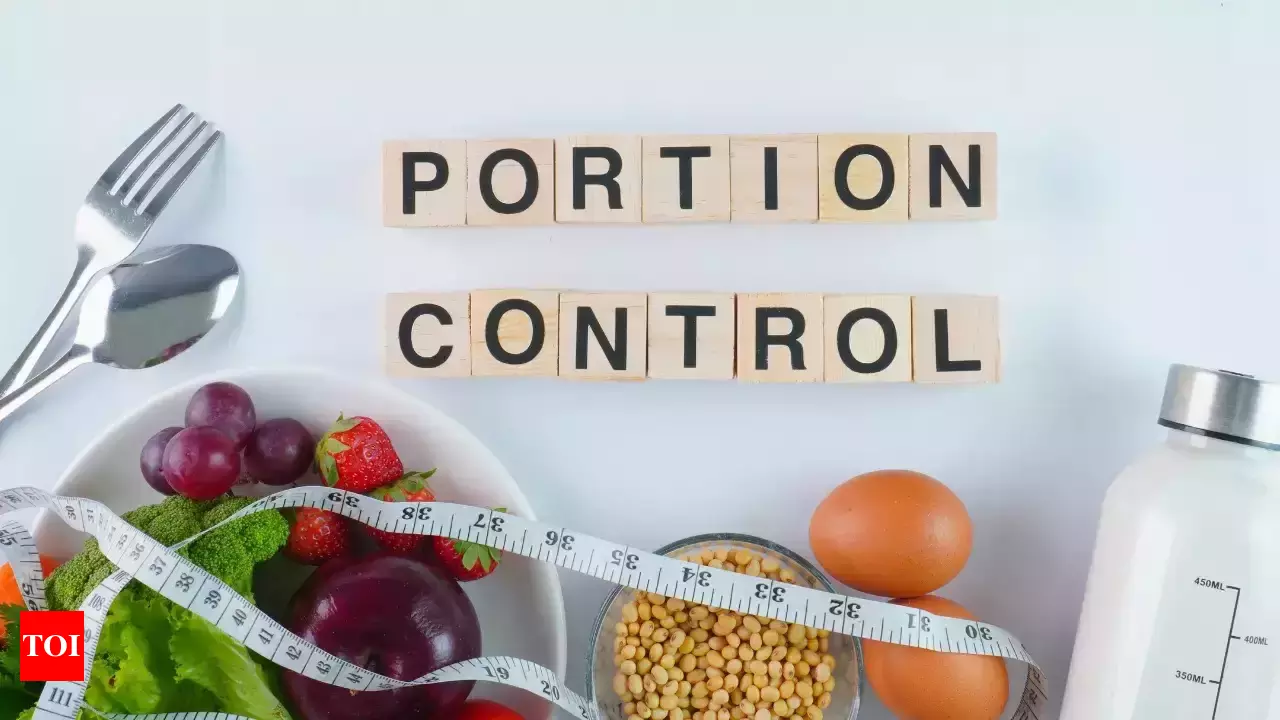
Keep up with the latest news and be part of our weekly giveaways and airtime sharing; follow our WhatsApp channel for more updates. Click to Follow us
In today’s world, where food is abundant and tempting, it’s easy to overindulge and lose track of our eating habits. However, eating excessive amounts of food can lead to a range of negative health consequences, including weight gain, obesity, and increased risk of chronic diseases. This is where portion control comes in – a simple yet effective way to manage your food intake and maintain a healthy lifestyle.
What is Portion Control?
Portion control refers to the practice of eating a specific amount of food at each meal or snack. It involves being mindful of the serving sizes and controlling the amount of food you consume. Portion control is not about depriving yourself of food, but about developing a healthy relationship with food and your body.
Why is Portion Control Important?
- Weight Management: Eating large portions can lead to consuming more calories than your body needs, resulting in weight gain. Portion control helps you maintain a healthy weight and reduces the risk of obesity.
- Reduces Risk of Chronic Diseases: Overeating has been linked to an increased risk of chronic diseases, such as diabetes, heart disease, and certain types of cancer. Portion control helps you avoid overeating and reduces your risk of developing these diseases.
- Improves Digestion: Eating large portions can put pressure on your digestive system, leading to discomfort, bloating, and other digestive problems. Portion control helps you eat smaller, more manageable amounts of food, reducing the strain on your digestive system.
- Saves Money: Cooking and eating large portions can lead to food waste and unnecessary expenses. Portion control helps you plan your meals, reduce food waste, and save money.
- Promotes Mindful Eating: Portion control encourages you to pay attention to your hunger and fullness cues, promoting mindful eating and a healthier relationship with food.
Tips for Practicing Portion Control
- Use Measuring Cups and Spoons: Measure out your food portions using cups and spoons to get an accurate idea of your serving sizes.
- Eat from Smaller Plates: Using smaller plates can help you eat smaller portions and feel full faster.
- Avoid Eating in Front of Screens: Eating in front of screens can lead to mindless snacking and overeating. Eat in a distraction-free environment to promote mindful eating.
- Plan Your Meals: Plan your meals in advance to ensure you’re eating the right portions and avoiding overeating.
- Be Mindful of Your Hunger and Fullness Cues: Pay attention to your body’s hunger and fullness cues, stopping when you feel satisfied rather than stuffed.
Conclusion
Portion control is a simple yet effective way to maintain a healthy lifestyle. By being mindful of your food portions, you can reduce your risk of chronic diseases, improve digestion, save money, and promote mindful eating. Remember, portion control is not about depriving yourself of food, but about developing a healthy relationship with food and your body. Start practicing portion control today and take the first step towards a healthier, happier you!
Please don’t forget to “Allow the notification” so you will be the first to get our gist when we publish it.
Drop your comment in the section below, and don’t forget to share the post.








